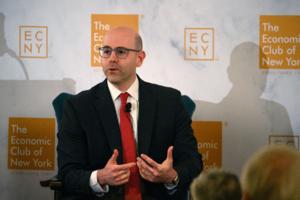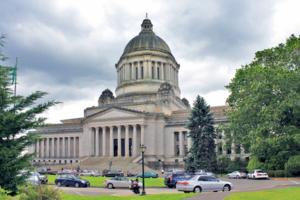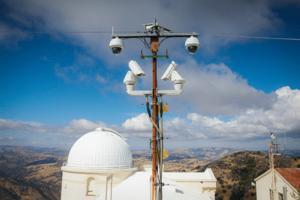Business
/ArcaMax

A Miami judge rules Carnival Corp. was negligent in a passenger's fall
The world’s largest cruise company, Carnival Corp., has been found liable for injuries a Miami woman suffered while onboard during a fall, and been ordered to pay her nearly $350,000 in damages.
A judge in the U.S. District Court for the Southern District of Florida in Miami issued the ruling earlier this month. The decision is unusual, as ...Read more
Meet the Atlanta insurance and financial services company that just got a $2.3 billion investment
OneDigital, an Atlanta-based insurance and financial services company, has received a multi-billion dollar investment to fuel its expansion, the company announced Friday. The deal values the company at $7.2 billion.
Its new investors are Connecticut-based Stone Point Capital and the Canada Pension Plan Investment Board, which invests the ...Read more

Spirit Airlines to furlough nearly 2,000 flight attendants
Spirit Airlines, the ultra-low-cost carrier known for its bright yellow planes and basic fares, plans to furlough about one-third of its flight attendants as it struggles to cut costs.
The airline will furlough roughly 1,800 flight attendants effective Dec. 1, company spokesperson Thomas Fletcher said in a statement.
The announcement comes ...Read more

US stocks bounce to head for 28th record ahead of Fed speakers
U.S. stocks were on track for another all-time closing high on Monday, as tech stocks drove the market higher reversing an early decline while central bank speakers offered clues on the path of interest rates.
The S&P 500 Index rose 0.4% at 2:53 p.m. in New York, putting the benchmark on track for its 28th record this year. Meanwhile, the tech...Read more

Fed's Miran makes an outlier's argument for cutting rates
The Federal Reserve’s newest policymaker, appointed by President Donald Trump, laid out his argument for aggressively lowering interest rates on Monday, presenting a view that aligns with the president’s demands but which makes him an outlier at the central bank.
In his first policy speech since joining the Fed, Governor Stephen Miran ...Read more

S&P 500 notches 28th record high of the year as tech rallies
U.S. stocks hit another all-time closing high on Monday as tech stocks drove the market higher, reversing an early decline, while central bank speakers offered clues on the path of interest rates.
The S&P 500 Index closed 0.4% higher, its 28th all-time close this year. Meanwhile, the tech-heavy Nasdaq 100 Index gained 0.6%.
A basket tracking ...Read more

Philly shipyard owner hires ex-Trump aide as it seeks clarity on immigration and investment
PHILADELPHIA — Alex N. Wong, a former senior adviser on national security to President Donald Trump, will lead defense, shipbuilding, and aerospace strategy for Hanwha, a South Korea-based multinational industrial group that last month announced it would invest $5 billion to expand its Philadelphia shipyard as part of a larger commitment by ...Read more

After insurance pullback, advocates demand a 'bill of rights' for California policyholders
A leading consumer group is proposing a policyholder rights initiative that would require insurers to offer coverage to California homeowners who fireproof their homes — or lose the right to sell home or auto insurance in the state for five years.
The Insurance Policyholder Bill of Rights was filed with state Atty. Gen. Rob Bonta’s office ...Read more

A big Realtors settlement could have led to lower agent commissions. They haven't changed
SAN JOSE, Calif. — When Eric Itakura listed his Mountain View condo last year, he hoped to save some money on commissions.
The rules over how agents’ fees are set had recently been rewritten as part of a landmark settlement reached between the National Association of Realtors and a group of home sellers. For decades, sellers typically paid ...Read more

How to negotiate commissions with your real estate agent
SAN JOSE, Calif. — For decades, home sellers typically covered both their own agent’s commission and the fee for the buyer’s broker, a structure that left little room for negotiation. But a recent legal settlement has shaken up that system, opening the door for buyers and sellers to haggle over who pays what — and how much.
In the Bay ...Read more

Trump's $100,000 H-1B fee fuels stress for staff, employers
Satish, a graduate student from India studying in San Francisco, thought this fall would be about finishing his business degree and then lining up an H-1B visa, the work permit that’s become a mainstay for skilled immigrants in the U.S.
Instead, he’s worried about his ability to build a career in the U.S. as he tries to make sense of the ...Read more

How the Fed impacts stocks, crypto and other investments
Higher interest rates played out on stocks, cryptocurrency and commodities such as oil over the past few years. But now that the Federal Reserve has been lowering short-term rates, what can investors expect from here, and how long will the shifting rate environment impact markets?
After lowering interest rates by 25 basis points at its December...Read more

WA's law requiring pay rates on job ads is changing. No one is happy
Roughly 2½ years after Washington’s pay transparency law took effect, lawmakers, state courts, employers and job seekers are still trying to make sense of it.
In an effort to address the disparity between men's and women's pay, the bill requires most employers to include salary ranges in job postings, rather than waiting to disclose the wage...Read more
Are your lost bitcoins gone forever? Here's how you might be able to recover them
While Bitcoin spent the last decade soaring and making millionaires out of many people, other owners of the world’s largest cryptocurrency have missed out. Why? One major reason: They’ve lost access to their account. In fact, more than $400 billion in Bitcoin is estimated to be lost — but some is recoverable, says at least one firm.
A ...Read more

Seattle, a coffee haven, is watching java prices spike. Why?
SEATTLE — How much does that morning cup of joe cost? The price may give you a jolt.
The price of a coffee is no longer under, like, $5," said Emma Ueda, 27, who lives in Seattle. "It could be a $12 day, just going to a cafe."
As the hometown of Starbucks and countless coffee shops, Seattle lives up to its reputation as a city that holds ...Read more

AI cameras are spotting wildfires across California -- often before humans call 911
For generations, fire lookout towers stood as landmarks across the American West.
Binoculars in hand, dedicated fire spotters scanned the landscape for smoke and radioed firefighters before flames grew out of control. But now, as California enters what is historically the most dangerous part of fire season — the end of summer before the first...Read more

Illinois toymaker takes its challenge of Trump administration's tariffs to Supreme Court
CHICAGO — In an airy warehouse in Vernon Hills, Illinois, workers pack educational toys designed to bring children joy and expand their worlds. Plastic apples that can be taken apart to understand fractions, a toy cash register and a kit with a purple stethoscope are stacked on blue metal racks, waiting to be shipped to a budding elementary ...Read more

Motormouth: Gas cap problem
Q: I am having a problem with my gas cap that is creating an engine warning on my dash. I have been tightening the gas cap quite a few times. I will sometimes get it to clear the check engine light, but it will soon come back to haunt me. Recently I bought locking gas cap thinking it may tighten up the cap and make the warning message go away, ...Read more

Microsoft urges H-1B workers to return to US after Trump executive order
SEATTLE — Microsoft urged traveling H-1B visa employees on Friday to return to the U.S. immediately in the wake of President Donald Trump’s executive order to increase visa fees to $100,000, according to internal emails.
Trump signed the executive order on Friday, claiming it will curb abuses that displace U.S. workers. The changes are set ...Read more

Trump to add new $100,000 fee for H-1B visas in latest crackdown
WASHINGTON — President Donald Trump signed a proclamation Friday that would move to extensively overhaul the H-1B visa program, requiring a $100,000 fee for applications in a bid to curb overuse.
The proclamation requires the payment and asserts that abuse of the H-1B pathway has displaced U.S. workers. The proclamation restricts entry under...Read more
Popular Stories
- Seattle, a coffee haven, is watching java prices spike. Why?
- WA's law requiring pay rates on job ads is changing. No one is happy
- Trump officials blocked US Steel from stopping work at plant
- A big Realtors settlement could have led to lower agent commissions. They haven't changed
- CDC backtracks on changing work-from-home accommodations










